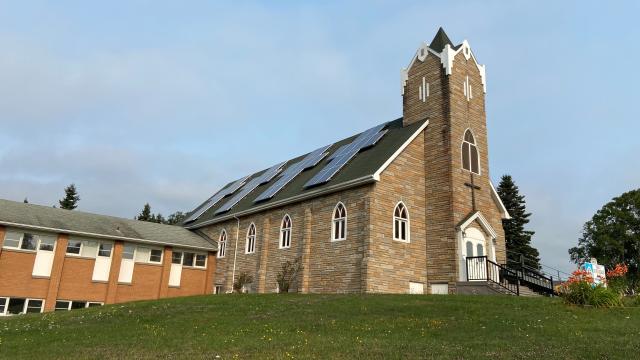
The United Church of Canada has committed the whole church to the aspirational goal of an 80% decrease in carbon emissions by 2030. This bold new target was set at General Council 44, currently meeting virtually in decision sessions.
This daring public commitment galvanizes every part of the church into common action to address the climate crisis, now become climate catastrophe. The new target accelerates a 2018 commitment that called for an 80% reduction by 2050.
“This audacious goal will spur debate, stimulate imagination, and most importantly, drive action and investment towards climate justice. Our commitment is both to address the church, but also to show leadership within broader society,” says Chief Financial Officer Erik Mathiesen.
The United Church of Canada has a long history of work on climate change, dating back to the 1990s, and an even longer commitment to ecological justice. This action builds on that history, seeking to act decisively on the grave threats to humanity, in recognition of how the accelerating catastrophe deepens existing social and economic inequities. This commitment also addresses the devastation to the Earth itself, the very web of creation God loved into being.
In seeking to dramatically reduce its carbon footprint the church is stepping up to its particular responsibility as a religious institution. Through its delivery partner, Faith and the Common Good, the United Church of Canada's Faithful Footprints program is currently working with 260 congregations to make their buildings more energy efficient, more than half way towards the goal of reaching 500 communities by 2025. For the 56 completed projects, carbon equivalency savings are equal to the annual energy of 147 homes (i.e., 628 metric tonnes of CO2e saved).
In addition to dramatically addressing its own emissions, whether in buildings, travel, or operations, the church also committed to strengthening its advocacy at both the provincial and national government level for bold climate action. The church will redouble its investment and business actions, building on its 2015 disinvestment from fossil fuel investments.
Whether in building local community resilience or in climate advocacy, the church will seek to strengthen collaboration with Indigenous communities, global partners, and ecumenical organizations, and build relationships with young people who have shown great moral climate leadership.
Recently, The United Church of Canada has also made deepening climate integrity one of the five strategic objectives of its national ministry.